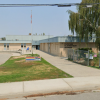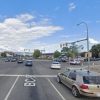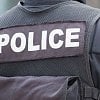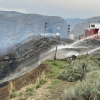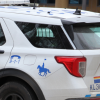As more and more information comes out about the impact concussions can have on the brain, a team of researchers at UBC have created a mouthguard that will track every hit during their upcoming playoff games.
The study is led by Dr. Lyndia Wu, who is an expert in brain injury biomechanics at UBC’s faculty of applied science. She was formerly at Stanford University, where she helped develop a mouthguard with motion sensors for her PhD.
“We started a five-year collaborative study with the UBC Thunderbirds men’s and women’s hockey team with two main research goals: to understand how the brain changes after a concussion in sports and how repeated impacts may lead to longer term brain changes,” explained Dr. Wu.
The mouthguard will capture data like speed, direction of impact, and strength of impact. Its close proximity to the brain means its an ideal tool to study hits to the head, and is more effective then helmet sensors.

The study garnered a $944,766 grant over five years from the Canadian Institutes of Health Research.
In addition to wearing the mouthguards on ice, the players will also be given pre and post-season assessments that will be used to track changes in their brain health over time. These assessments will utilize MRI’s, balance tests, cognitive function tests and eye tracking tests.
“Severe hits to the head are what most people are aware of, but even milder hits may have significant effects if they happen multiple times over the years,” said Dr. Alexander Rauscher, who’s an associate professor of pediatrics.
The study is tracking both the men's and women's team, and research suggests that women are more likely to sustain a concussion, yet most studies are done on men.
The hope is that by the end of the study, it will lead to better preventative measures such as revamped helmets, improved diagnostic testing and more effective post-concussion treatment.
“Ultimately, we hope to learn how long it takes the brain to recover from a concussion,” explained Dr. Rauscher. “We also want to give athletes information on where they should take a break after they’ve had a certain number of hits so they do not risk ending up with long-term negative effects.”
Click this link for more information on the study.








